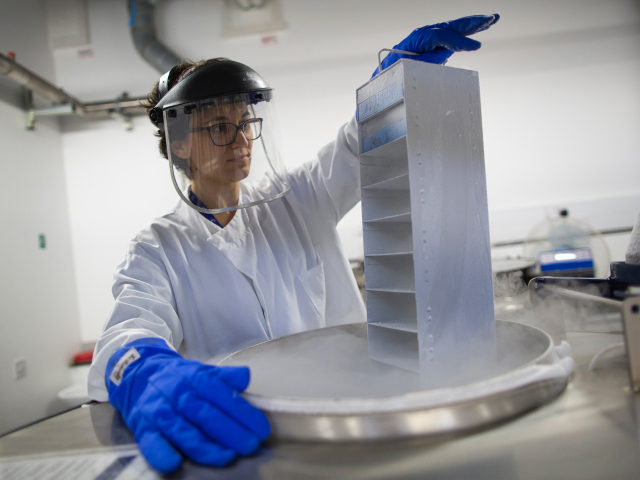Advancements in cancer research in the UK could be delayed by two years due to the Chinese coronavirus pandemic, The Institute of Cancer Research, London, has said.
The ICR, which is a member of the University of London, said on Sunday that while a survey of its researchers from last year estimated delays for cancer patients could be as long as 17 months due to the pandemic, that figure “was an underestimate” according to its chief executive, Paul Workman.
“The coronavirus pandemic has posed the greatest threat to cancer research in generations. I now fear that when our researchers predicted in the autumn that advances for cancer patients could be delayed by nearly 18 months, it was an underestimate.
“Without extra funding to address the effects of the pandemic and plug holes in research budgets, cancer patients could end up waiting an extra two years to benefit from research discoveries,” Professor Workman said.
The research institute warned that “tightened restrictions in response to new variants have further limited laboratory research time”, with the number of scientists able to access labs falling by 30 per cent on top of the restrictions in place before Christmas 2020.
4.7 Million Britons Waiting for Routine Operations, Highest Number Since 2007 https://t.co/IKBO9prEBN
— Breitbart London (@BreitbartLondon) April 16, 2021
Many labs were closed entirely at the beginning of the outbreak, with the proportion of labs closed still at 15 per cent as of February. Some 30 per cent of the facility’s shifts are undertaken on weekends or between midnight and 8 am in an effort to make up for lost time.
Professor Workman’s remarks come as an analysis of NHS England by the Institute for Public Policy Research (IPPR) projects that the country is facing a “ticking time bomb” of missed cancer cases, as referrals for cancer had fallen during the lockdown, with the group predicting that without government intervention in the form of funding, it could lead to a “decade of disruption for health services”.
The analysis found that some 350,000 fewer people had been urgently referred by their GPs between the time of the first lockdown in March 2020 and January 2021 on the same period the 12 months prior. Cancer diagnoses also fell from 44 per cent to 41 per cent.
Last week it was also revealed that 4.7 million Britons were waiting for routine operations, the highest number since 2007 because the NHS was forced to divert resources to deal with the Chinese virus.
UK Faces ‘Ticking Time Bomb’ of Missed Cancer Cases, Study Claims https://t.co/SOFZ9IGgai
— Breitbart London (@BreitbartLondon) April 12, 2021

COMMENTS
Please let us know if you're having issues with commenting.